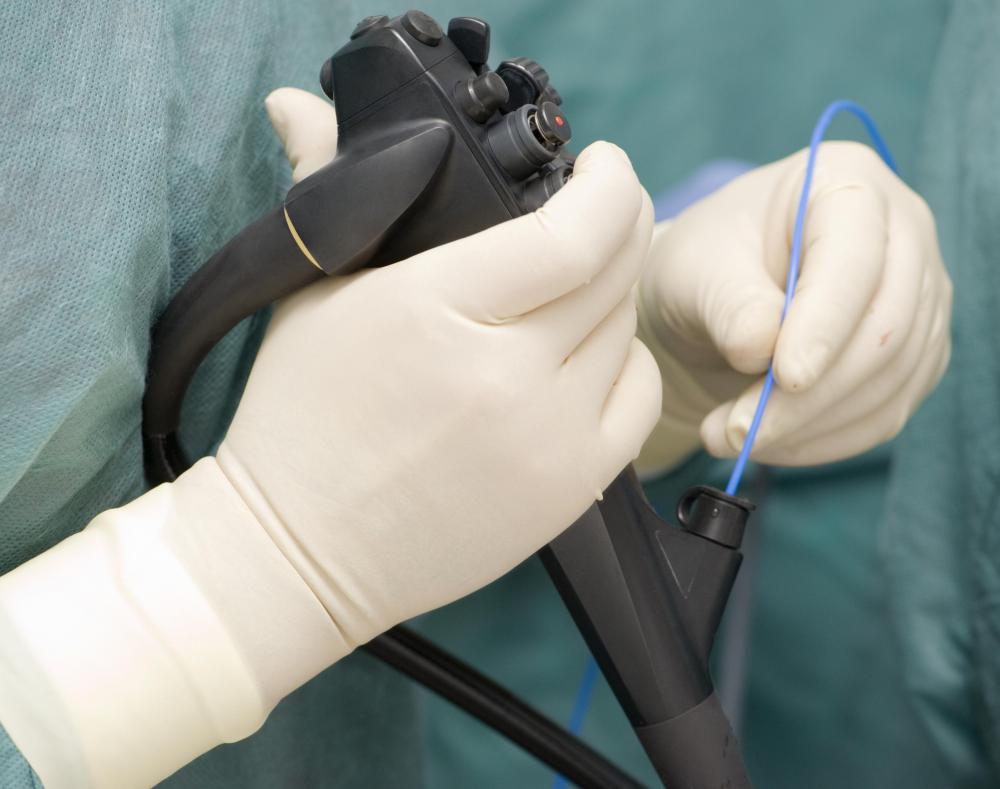At TheHealthBoard, we're committed to delivering accurate, trustworthy information. Our expert-authored content is rigorously fact-checked and sourced from credible authorities. Discover how we uphold the highest standards in providing you with reliable knowledge.
What Is the Upper Esophageal Sphincter?
The upper esophageal sphincter is a region of muscle located at the top of the esophagus. Normally, the esophageal sphincter tightly is tightly closed. The sphincter relaxes during swallowing, and this allows food to pass through the sphincter, into the esophagus and eventually into the stomach. The upper esophageal sphincter also prevents air from entering the esophagus from the pharynx.
At the lower end of the esophagus is the lower esophageal sphincter, which prevents food from backing up into the esophagus from the stomach. Both sphincters are controlled by muscles that relax, allowing them to open and allowing food to pass through them. The lower esophageal sphincter differs from the upper sphincter in that it is autonomic and cannot be consciously controlled. The upper esophageal sphincter is triggered to open during the swallowing reflex.

Sometimes, the lower and upper esophageal sphincters don't function as well as they should. If the lower esophageal sphincter is not able to tightly close, acid from the stomach can back up into the esophagus, causing a condition known as gastroesophageal reflux disease (GERD). This condition can cause a burning sensation, often described as heartburn, and it can be quite irritating to the esophagus. If the acid continues up high enough to reach the upper esophageal sphincter, a similar condition known as laryngpharyngeal reflux (LPR) can occur.

LPR is often referred to as “silent reflux” because the symptoms of LPR can be easily attributed to other things, and it can be difficult for healthcare providers to make an accurate diagnosis. Common symptoms of LPR include persistent hoarseness, post-nasal drip, sore throat, ear infections and difficulty swallowing. Infants are especially susceptible both GERD and LPR because their esophageal sphincters are immature and often don't close fully. Infants also spend a lot of time lying down, and this makes it easier for the stomach acids to flow up through the esophagus. If left untreated, LPR and GERD can cause swelling or permanent scarring of the esophagus, scarring of the larynx and even chronic ear infections.
AS FEATURED ON:
AS FEATURED ON:

















Discuss this Article
Post your comments